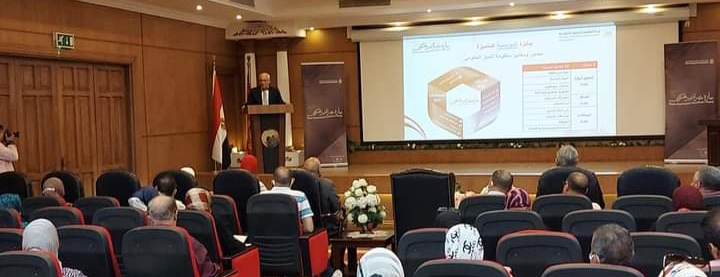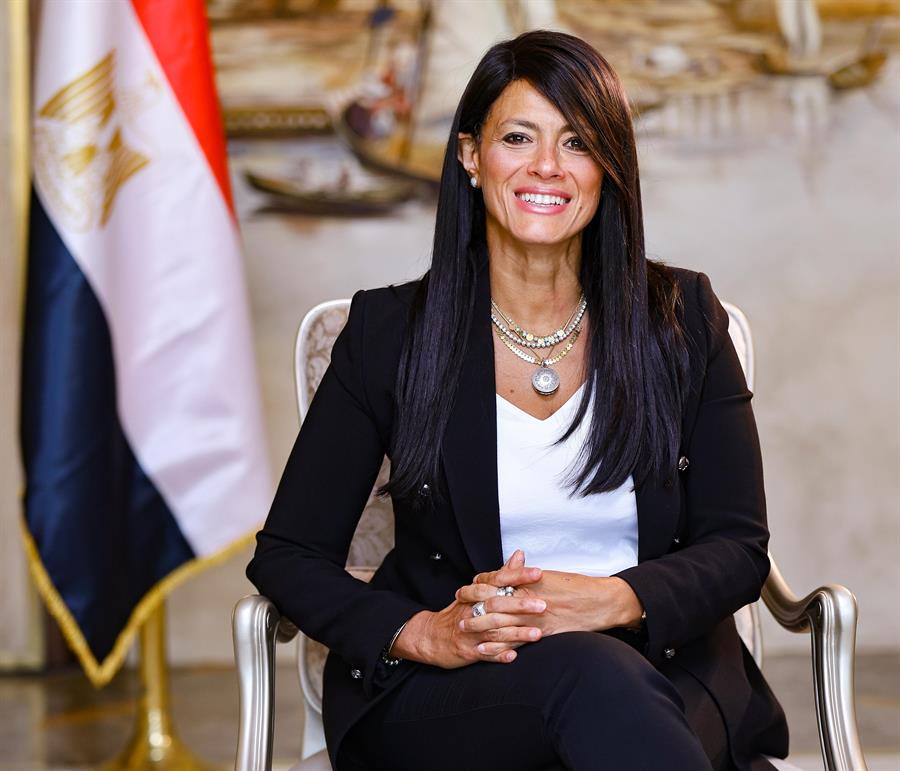Egypt Award for Gov't Excellence holds an awareness seminar at the General Court of Port Said Governorate

20 November 2021
The Egypt Government Excellence Award held an awareness seminar for the leaders of the Port Said Governorate General Office and representatives of the affiliated sectors; about the award’s operations and the government excellence system.
This came within the framework of the state’s efforts to spread a culture of excellence and institutional development, and the award’s management’s keenness to make a qualitative leap in institutional performance and to consolidate the principles and values of excellence in the state’s sectors during its journey towards governmental excellence to improve the quality of life for citizens and enhance the leadership and competitiveness of the Egyptian state in line with Egypt’s Vision 2030.Dr. Hala El-Said, Minister of Planning and Economic Development said that the aim of launching the Egypt Award for Government Excellence is to stimulate the spirit of competition and excellence at the level of employees on the one hand and at the level of government institutions on the other.Major General Staff Harb Adel Al-Ghadban, Governor of Port Said, praised the efforts of the award administration to spread the culture of excellence, stressing the keenness to maintain effective participation in the work of the new session of the award, not only to achieve victory but to reach an advanced government performance that will have an impact on the citizen.Al-Ghadban added that in the context of activating the digital transformation system, the governorate is in the process of launching the "Unified Card", which will be dedicated to obtaining several services, including health insurance, pension, salaries, and catering, as well as the entitlements of social protection programs for those who deserve them, including solidarity and dignity, pensions for widows and divorcees and other various social programs.Eng. Khaled Mostafa, Permanent Undersecretary of the Ministry of Planning and Economic Development and supervisor of the Egypt Award for Government Excellence, pointed out that the award aims to encourage competition between government institutions at all national, local, and regional levels, achieve better rates of citizen satisfaction, spread a culture of quality and excellence, enhance the spirit of innovation, and shed light on successful models of government institutions.
Mustafa explained that the award categories include six awards, namely the Distinguished Institution Award, the Distinguished Unit, Government Services, Institutional Innovation and Creativity, the Distinguished Leaders Award, and Individual Excellence.During the symposium, Soha Said, Executive Director of the Egypt Award for Government Excellence, reviewed the vision, mission, and objectives of the award, which are consistent with the dimensions and pillars of Egypt's Vision 2030. She referred to the various categories of the award and the stages of implementing the work of the second cycle of the award, praising the participation of the governorate and the efforts that contributed to the qualification of a number of its candidates to the finals.
She noted that Al Sharq neighborhood won second place in the category of the best neighborhood, the developed Citizens Service Center in the first place, and the Climate Center in Port Said ranked third in the category of catering offices in the award session 2020.Suha Saeed also explained that the second cycle of the award included 19 categories, for which more than 2,000 applications were submitted, while 4 new categories were created, including the best government employee, best work team, best health office, and best catering office, and two categories of registry offices are being added.She indicated that 100% of all applications and evaluation processes were relied on electronic transformation in the second cycle, which contributed significantly to reducing the percentage of exclusions to 14% instead of 39% in the first cycle. Soha Said clarified the conditions for submission and participation in the award categories, the training courses, and workshops that were presented by the award management at the level of all categories, in addition to the training programs offered on electronic communication platforms.Suha referred to the study of presenting successful best practices while examining the possibility of providing reports to participants who are not qualified for the final stage to identify opportunities for improvement to develop performance.On his part, Dr. Abdel Hakim Radwan, Training and Evaluation Consultant, pointed out the award; to the values that govern the award’s operations of transparency, cooperation, mastery, and value addition, as well as the stages of the evaluation process, in addition to reviewing the award criteria guides for various categories, which are based on the axes and criteria of the government excellence system.









